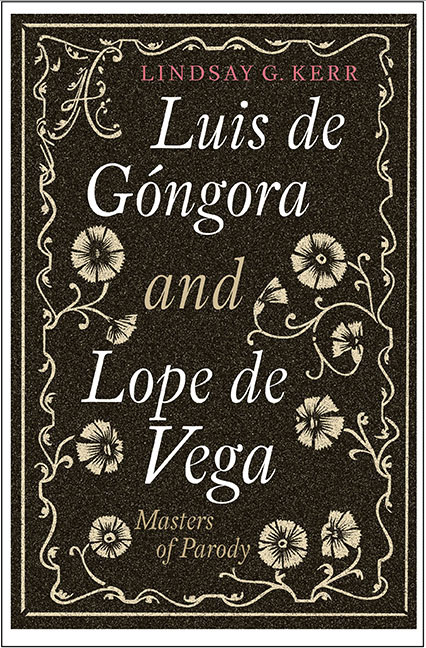Summary
Luis de Góngora y Argote and Lope de Vega y Carpio, príncipe de las tinieblas and monstruo de la naturaleza, respectively, are infrequently invoked together outside the realm of poetic belligerence. As the cultural landscape they inhabit bends and shapes to their gravity, these two literary forces collide in violent counteraction. This at least has been the prevailing view of criticism, bolstered by Emilio Orozco Díaz's seminal work Lope y Góngora frente a frente (1973), in which he illuminates the poets’ divergent poetic methodologies and ethos. Although Orozco admits a grudging admiration between Góngora and Lope, my goal is to temper undeniable opposition with a methodology that allows the latent correlations in their poetic methods to emerge. It is at their most evident point of convergence that I conduct this study, a point which is also one of culmination: late parodic poetry. Perhaps the continued relevance of these parodic works lies in the perennial nature of their ethos, that which is projected out of the text, if not necessarily explicitly expounded by it. Parody is that meta ‘rhétorique “noir”’ of which Barthes speaks, the ludic accompaniment and deconstructor of ‘repressive’ institutionalised rhetoric whose real power lies in the playful space between signifier and signified. The atomic structure of these works and the processes instituted by certain combinations of elements are governed by the paradoxical laws of parody: at once authority and transgression. Robert Phiddian's conception of parody as a self-referential, deconstructive, absurd and supplementary entity broadly describes many of the conditions of Lope's and Góngora's parody. This late poetry is a supplément in the Derridean sense, ‘it adds only to replace’; it replicates, it modifies and it amplifies its own generic code to a variety of ends and beginnings. It bears witness, particularly as regards Lope and Góngora, to the struggle between logos and mythos:
Logos had never been able to provide human beings with the sense of significance that they seemed to require. It had been myth that had given structure and meaning to life, but as modernisation progressed and logos achieved such spectacular results, mythology was increasingly discredited. As early as the sixteenth century, we see more evidence of a numbing despair, a creeping mental paralysis, and a sense of impotence and rage as the old mythological way of thought crumbled and nothing new appeared to take its place.
- Type
- Chapter
- Information
- Luis de Góngora and Lope de VegaMasters of Parody, pp. 1 - 16Publisher: Boydell & BrewerPrint publication year: 2017
- 1
- Cited by

